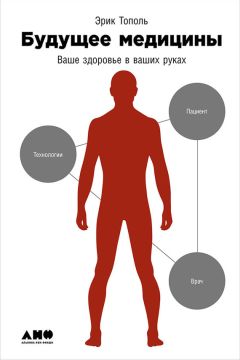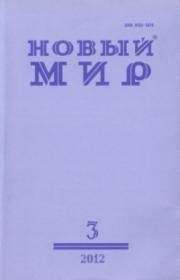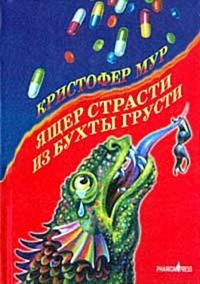54. E. M. Rusli, "Attempting to Code the Human Brain," Wall Street Journal, February 3, 2014, http://online.wsj.com/news/articles/SB100 01424052702304851104579361191171330498.
55. N. B. Turk-Browne, "Functional Interactions as Big Data in the Human Brain," Science 342, no. 6158 (2013): 580–584.
56. D. M. Wenger and A. F. Ward, "The Internet Has Become the External Hard Drive for Our Memories," Scientific American, November 19, 2013, http://www.scientificamerican.com/article/the-internet-has-become-the-external-hard-drive-for-our-memories/.
57. "Neuromorphic Computing: The Machine of a New Soul," The Economist, August 1, 2013, http://www.economist.com/news/science-and-technology/21582495-computers-will-help-people-understand-brains-better-and-understanding-brains.
58. G. Marcus, "Hyping Artificial Intelligence, Yet Again," New Yorker, December 31, 2014, http://www.newyorker.com/online/blogs/elements/2014/01/the-new-york-times-artificial-intelligence-hype-machine.html.
59. D. Basulto, "Artificial Intelligence Is the Next Big Tech Trend. Here's Why," Washington Post, Ma rch 25, 2014, http://www.washingtonpost.com/blogs/innovations/wp/ 2014/03/25/artificial-intelligence-is-the-next-big-tech-trend-heres-why//?print=1.
60. L. Dormehl, "Facial Recognition: Is the Technology Taking Away Your Identity?" The Guardian,May 4, 2014, http://www.theguardian.com/technology/2014/may/04/facial-recognition-technology-identity-tesco-ethical-issues/print.
61. M. S. Bartlett et al., "Automatic Decoding of Facial Movements Reveals Deceptive Pain Expressions," Current Biology 24 (2014): 738–743.
62. J. Hoffman, "Reading Pain in a Human Face," New York Times, April 28, 2014, http://well.blogs.nytimes.com/2014/04/28/reading-pain-in-a-human-face/.
63. S. Du, Y. Tao, and A. M. Martinez, "Compound Facial Expressions of Emotion," PNAS Early Edition, March 31, 2014, http://www.pnas.org/cgi/doi/10.1073/pnas.1322355111.
64. H. Ledford, "The Computer Will See You Now," Nature News, November 9, 2011, http://www.nature.com/news/the-computer-will-see-you-now-1.9324.
65. F. Manjoo, "Conjuring Images of a Bionic Future," New York Times, April 24, 2014, http://www.nytimes.com/2014/04/24/technology/personaltech/app-controlled-hearing-aid-improves-even-normal-hearing.html.
66. "What Is Bothering You Today?" Symptom Checker, the Award-winning Symcat App, accessed August 13, 2014, http://www.symcat.com/.
67a. P. Marks, "Watson in Your Pocket: Supercomputer Gets Own Apps," New Scientist, April 28, 2014, http://www.newscientist.com/article/dn25476-watson-in-your-pocket-supercomputer-gets-own-apps.html?full=true&print=true-.U1-0°17KR4E.
67b. H. Singh, "The Battle Against Misdiagnosis," Wall Street Journal, August 7, 2014, http://online.wsj.com/articles/hardeep-singh-the-battle-against-misdiagnosis-1407453373#printMode.
67c. J. Frieden, "Misdiagnosis. Can It Be Remedied?" MedPage Today, August 17, 2014, http://www.medpagetoday.com/PublicHealthPolicy/ GeneralProfessionalIssues/47232.
68. J. O. Drife, "House," British Medical Journal 330 (2005): 1090.
69. "BMJ Backs HOUSE MD," Z3, January 17, 2007, http://z3.invisionfree.com/House_Fans/ar/t1817.htm.
70. C. J. Gill, L. Sabin, and C. H. Schmid, "Why Clinicians Are Natural Bayesians," British Medical Journal 330 (2005): 1080–1083.
71. R. N. Chitty, "Why Clinicians Are Natural Bayesians: Is There a Bayesian Doctor in the House?" British Medical Journal 330 (2005): 1390.
72. D. Hernandez, "Artificial Intelligence Is Now Telling Doctors How to Treat You," Wired, June 2, 2014, http://www.wired.com/2014/06/ai-healthcare/.
73. R. M. French, "Dusting Off the Turing Test," Science 336 (2012): 164–165.
74. G. Poste, "Bring on the Biomarkers," Nature 469 (2011): 156–157.
75. A. B. Jensen et al., "Temporal Disease Trajectories Condensed from Population-Wide Registry Data Covering 6.2 Million Patients," Nature Communications, June 24, 2014, http://www.readbyqxmd.com/read/24959948/temporal-disease-trajectories-condensed-from-population-wide-registry-data-covering-6-2-million-patients.
76. C. Mims, "Forget 'The Cloud'; 'The Fog' Is Tech's Future," Wall Street Journal, May 18, 2014, http://online.wsj.com/news/articles/SB1000 1424052702304908304579566662320279406.
77. M. Cottrell et al., "Fault Prediction in Aircraft Engines Using Self-Organizing Maps," 2009, accessed from arXiv, August 13, 2014, http://arxiv.org/pdf/0907.1368v1.pdf.
78. R. Pipke et al., "Feasibility of Personalized Nonparametric Analytics for Predictive Monitoring of Heart Failure Patients Using Continuous Mobile Telemetry," Proceedings of the 4th Conference on Wireless Health, 2013, Article No. 7, accessed from the ACM Digital Library, August 13, 2014, http://dl.acm.org/citation.cfm?id=2534107.
79. C. Smith, "The Digital Doctor Will See You Now: How Big Data Is Saving Lives," Tech Radar, June 18, 2014, http://www.techradar.com/news/computing/the-digital-doctor-will-see-you-now-how-big-data-is-saving-lives-1253870.
80. J. Hamblin, "Who Will Watch You Fall? A Radar Detection Program for the Elderly," The Atlantic, April 2014, http://www.theatlantic.com/health/print/2014/04/old-americans-on-radar/360833/.
81a. P. Clark, "Innovation: Floor Tiles That Can Monitor the Health of the Elderly," Businessweek, March 20, 2014, http://www.businessweek.com/articles/2014-03-20/intellimat-flooring-measures-health-based-on-footstep-patterns.
81b. D. Spector, "Microchips Will Be Implanted Into Healthy People Sooner Than You Think," Business Insider, August 8, 2014, http://www.businessinsider.com/microchip-implants-in-healthy-people-2014-7.
82. W. Koh et al., "Noninvasive In Vivo Monitoring of Tissue-Specific Global Gene Expression in Humans," in PNAS Early Edition, May 5, 2014, http://www.pnas.org/cgi/doi/10.1073/pnas.1405528111.
1. S. Berkley, «How Cell Phones Are Transforming Health Care in Africa,» MIT Technology Review, Septmber 12, 2013, http://www.technologyreview.com/view/519041/how-cell-phones-are-transforming-health-care-in-africa/.
2. A. Caramenico, "Mobile Tech to End Health Disparities," Fierce Health Payer, February 13, 2014, http://www.fiercehealthpayer.com/node/23277/print.
3. C. J. L. Murray and A. D. López, "Measuring the Global Burden of Disease," New England Journal of Medicine 369 (2013): 448–457.
4. C. Murray et al., "The Global Burden of Disease: Generating Evidence, Guiding Policy," Institute for Health Metrics and Evaluation, July 23, 2013, http://www.healthdata.org/sites/default/files/files/policy_report/2013/GBD_GeneratingEvidence/IHME _GBD_GeneratingEvidence_FullReport.pdf.
5. L. O. Gostin, "Healthy Living Needs Global Governance," Nature 511 (2014): 147–149.
6. B. McKay, "Tuberculosis Affects Children More Than Previously Thought," Wall Street Journal, March 23, 2014, http://online.wsj.com/news/articles/SB1000 1424052702304179704579457780012223184.
7. M. Kessel, "Neglected Diseases, Delinquent Diagnostics," Science Translational Medicine 6, no.226 (2014): 1–3.
8. J. G. Kahn, J. S. Yang, and J. S. Kahn, "'Mobile' Health Needs and Opportunities in Developing Countries," Health Affairs 29, no. 2 (2010): 252–258.
9. R. Richards-Kortum and M. Oden, "Devices for Low-Resource Health Care," Science 342 (2013): 1055–1057.
10. A. Wesolowski et al., "Quantifying the Impact of Human Mobility on Malaria," Science 267 (2012): 267–270.
11a. D. N. Breslauer et al., "Mobile Phone Based Clinical Microscopy for Global Health Applications," PLoS One 4, no. 7 (2009): e6320.
11b. S. A. Lee and C. Yang, "A Smartphone-Based Chip-Scale Microscope Using Ambient Illumination," Lab Chip 14 (2014): 3056–3063.
12. E. K. Sackmann, A. L. Fulton, and D. J. Beebe, "The Present and Future Role of Microfluidics in Biomedical Research," Nature 507 (2014): 181–189.
13. "Detecting Disease with a Smartphone Accessory," Science Daily, June 4, 2013, http://www.sciencedaily.com/releases/2013/06/130604113959.htm.
14. A. D. Warren et al., "Point-Of-Care Diagnostics for Noncommunicable Diseases Using Synthetic Urinary Biomarkers and Paper Microfluidics," PNAS Early Edition, February 19, 2014, http://www.pnas.org/content/early/2014/02/19/1314651111.
15. G. Miller, "How to Make a Microscope Out of Paper in 10 Minutes," Wired, March 7, 2014, http://www.wired.com/wiredscience/2014/03/paper-microscope/.
16. "The $1 Origa mi Microscope," MIT Technolog y Review, March 11, 2014, http://www.technologyreview.com/view/525471/the-1-origami-microscope/.
17. B. Ouyang, "50 Cent Origami Microscope for Third-World Diagnostics," MedGadget, March 11, 2014, http://www.medgadget.com/2014/03/50-cent-origami-microscope-for-third-world-diagnostics.html/print/.
18. K. Newby, "Standford Bioengineer Develops a 50-Cent Paper Microscope," Scope Blog, March 10, 2014, http://scopeblog.stanford.edu/2014/03/10/stanford-bioengineer-develops-a-50-cent-paper-microscope/.
19. J. Cybulski, J. Clements, and M. Prakash, "Foldscope: Origami-Based Paper Microscope," arXiv, 2014, http://arxiv.org/pdf/1403.1211.pdf.
20. K. Newby, "Free DIY Microscope Kits to Citizen Scientists with Inspiring Project Ideas," Scope Blog, March 13, 2014, http://scopeblog.stanford.edu/2014/03/13/free-diy-microscope-kits-to-citizen-scientists-with-inspiring-project-ideas/.
21. F. Alam, "Birth of the DIY Malaria Detector," Popular Science, January 16, 2014, http://www.popsci.com/blog-network/biohackers/birth-diy-malaria-detector.
22. C. Scott, "New Inexpensive Skin Test in Development to Diagnose Malaria in an Instant," Singularity Hub, January 29, 2014, http://singularityhub.com/2014/01/29/new-inexpensive-skin-test-to-diagnose-malaria-in-an-instant/.
23. D. G. McNeil, "A New Test for Malaria, No Blood Required," New York Times, January 7, 2014, http://www.nytimes.com/2014/01/07/science/a-new-test-for-malaria-no-blood-required.html.
24. E. Y. Lukianova-Hleb et al., "Hemozoin-Generated Vapor Nanobubbles for Transdermal Reagent– and Needle-Free Detection of Malaria," PNAS Early Edition, December 30, 2013, http://www.pnas.org/content/early/2013/12/26/1316253111.abstract?sid=0d140ff1-05a8-4161-84db-ac74a789ba19.
25. B. Dolan, "MIT Startup Winner Envisions Wristworn, Malaria Diagnostic Device," MobiHealth-News, May 15, 2014, http://mobihealthnews.com/33193/mit-startup-winner-envisions-wrist worn-malaria-diagnostic-device/.
26. C. Winter, "Nanobiosym's Gene-Radar Diagnoses Diseases Faster," Bloomberg Businessweek, December 12, 2013, http://www.businessweek.com/articles/2013-12-12/innovation-nanobiosyms-gene-radar-diagnoses-diseases-faster.
27. A. Proffitt, "QuantuMDx Launches MolDx Indiegogo Campaign," Bio-IT World, February 12, 2014, http://www.bio-itworld.com/2014/2/12/quantumdx-launches-moldx-indiegogo-campaign.html.
28. M. Perelman, "Biomeme Transforming Smartphones into Convenient, Low-Cost Labs for Quick DNA Diagnostics and On-Site Disease Tracking," presented at the Scripps Translational Science Institute on September 12, 2013.
29. T. Fong, "QuantuMDx Eyeing 2015 Launch of Handheld POC MDx Device," Genome Web, January 27, 2014, http://www.genomeweb.com/pcrsample-prep/quantumdx-eyeing-2015-launch-handheld-poc-mdx-device.
30. S. Baum, "Biomeme's Smartphone Lab to Identify Pathogens Sets Sights on Central America," MedCity News, April 3, 2014, http://medcitynews.com/2014/04/biomemes-smartphone-lab-identify-pathogens-sets-sights-central-america/.
31. "Pocket Diagnosis," University of Cambridge, accessed August 13, 2014, http://www.cam.ac.uk/research/news/pocket-diagnosis.
32. A. K. Yetisena et al., "A Smartphone Algorithm with Inter-Phone Repeatability for the Analysis of Colorimetric Tests," Sensors and Actuators B: Chemical 196 (2014): 156–160.
33. A. H. J. Kolk et al., "Breath Analysis as a Potential Diagnostic Tool for Tuberculosis," International Journal of Tuberculosis and Lung Disease 16, no. 6 (2012): 777–782.
34. G. Theron et al., "Feasibility, Accuracy, and Clinical Effect of Point-of-Care Xpert MTB/RIF Testing for Tuberculosis In Primary-Care Settings in Africa: A Multicentre, Randomised, Controlled Trial," The Lancet 383 (2014): 424–435.
35. J. I. Gordon et al., "The Human Gut Microbiota and Undernutrition," Science Translational Medicine 12, no. 4 (2012): 137ps12.
36. D. A. Relman, "Undernutrition – Looking Within for Answers," Science 339 (2013): 530–532.
37. M. I. Smith et al., "Gut Microbiomes of Malawian Twin Pairs Discordant for Kwashiorkor," Science 339 (2013): 548–554.
38. E. Yong, "Gut Microbes Contribute to Mysterious Malnutrition," National Geographic, January 30, 2013, ht t p://phenomena.nationalgeographic.com/2013/01/30/gut-microbes-kwashiorkor-malnutrition/.
39. A. Anthony, "I Had the Bacteria in My Gut Analysed. And This May Be the Future of Medicine," The Guardian, February 11, 2014, http://www.theguardian.com/science/2014/feb/11/gut-biology-health-bacteria-future-medicine/print.
40. I. Trehan et al., "Antibiotics as Part of the Management of Severe Acute Malnutrition," New England Journal of Medicine 368, no. 5 (2013): 425–435.
41. D. Grady, "Malnourished Gain Lifesaver in Antibiotics," New York Times, January 31, 2013, http://www.ny times.com/2013/01/31/hea lth/antibiotics -can-save -lives -of-severely-ma lnourished-children-studies-find.html.
42. X. Didelot et al., "Transforming Clinical Microbiology with Bacterial Genome Sequencing," Nature Reviews Genetics 13, no. 9 (2012): 601–612.
43. E. Yong, "Searching for a 'Healthy' Microbiome," PBS, January 29, 2014, http://www.pbs.org/wgbh/nova/next/body/microbiome-diversity/.
44. P. R. Dormitzer et al., "Synthetic Generation of Influenza Vaccine Viruses for Rapid Response to Pandemics," Science Translational Medicine 5, no. 185 (2013): 1–13.





